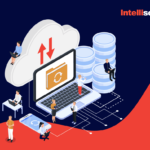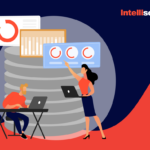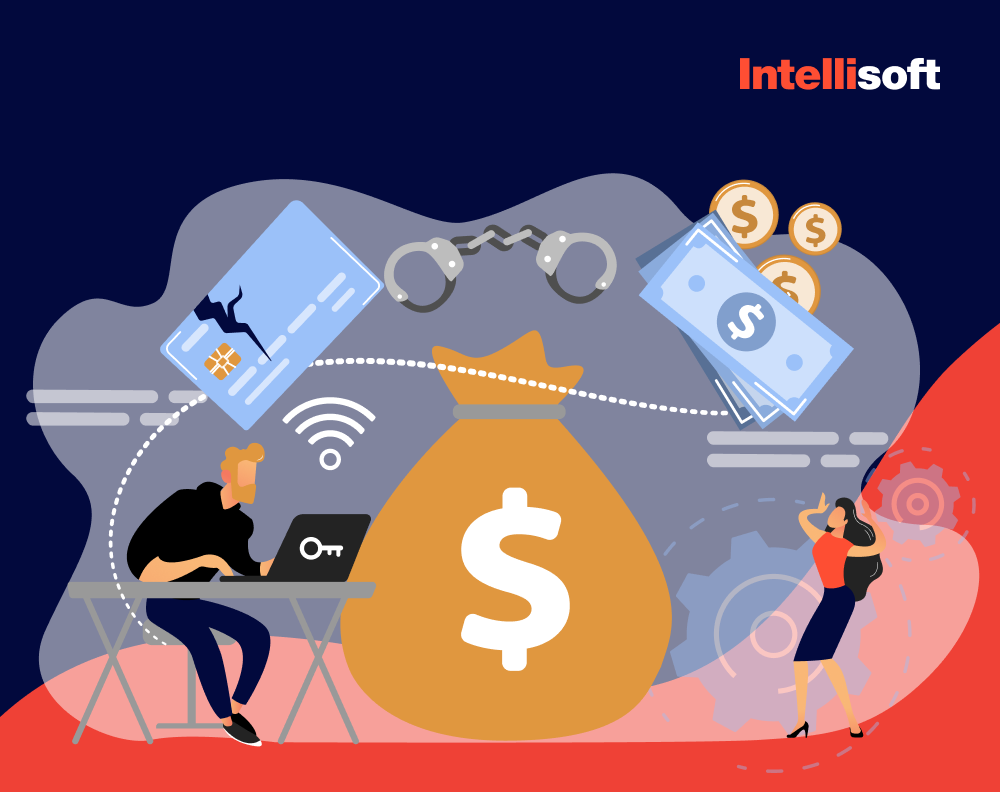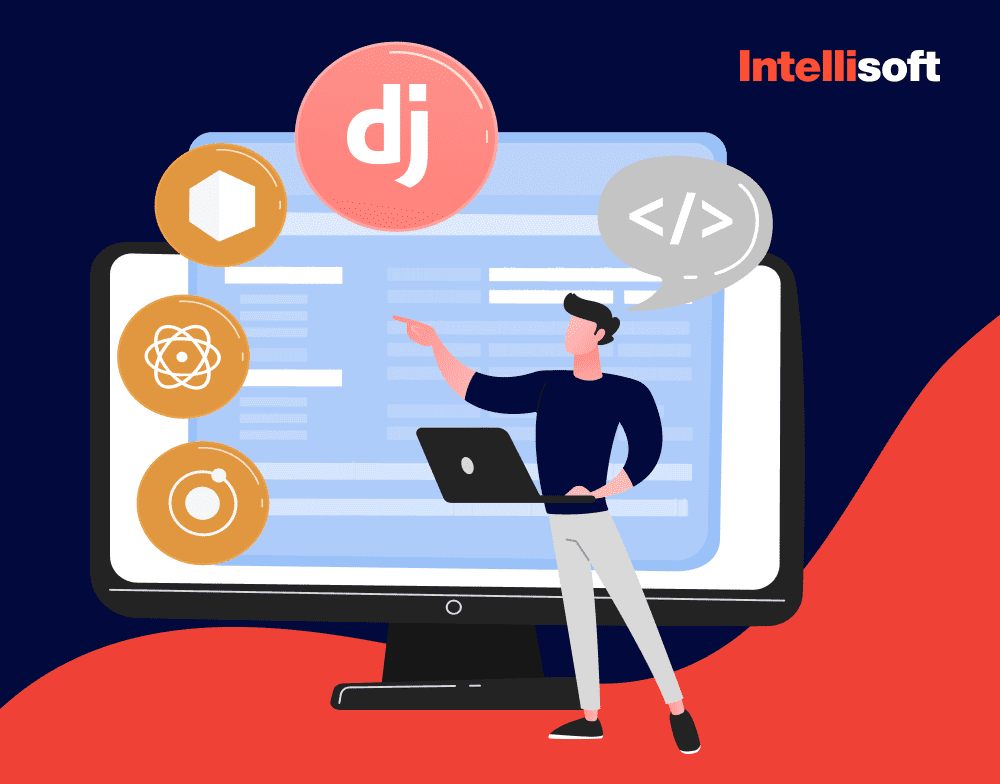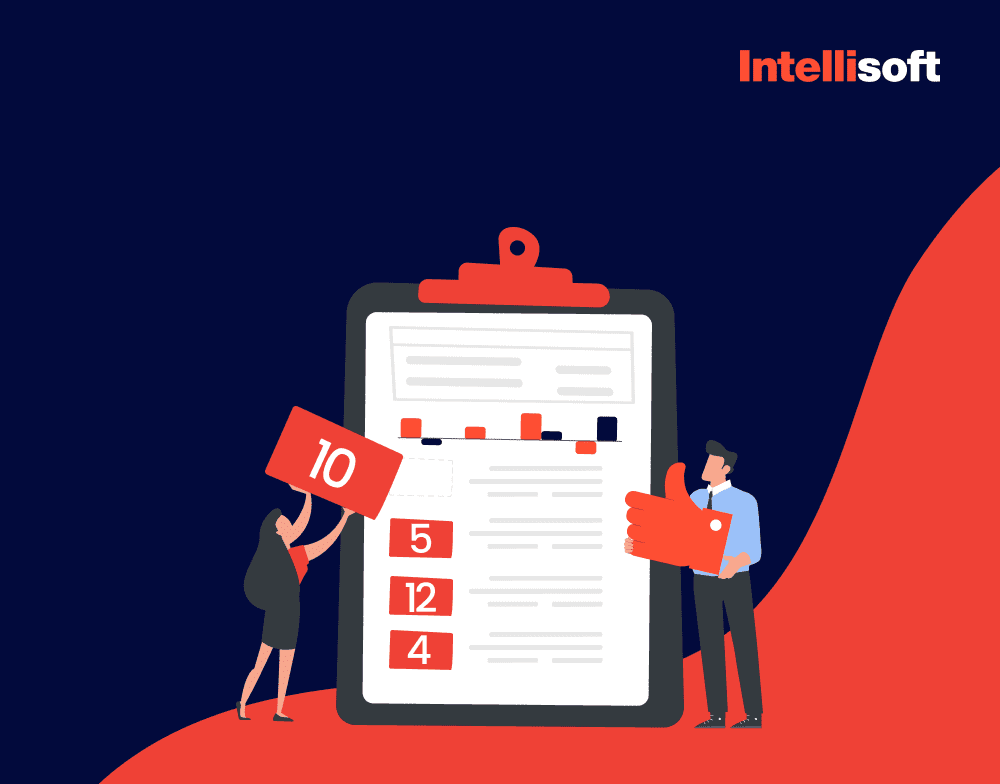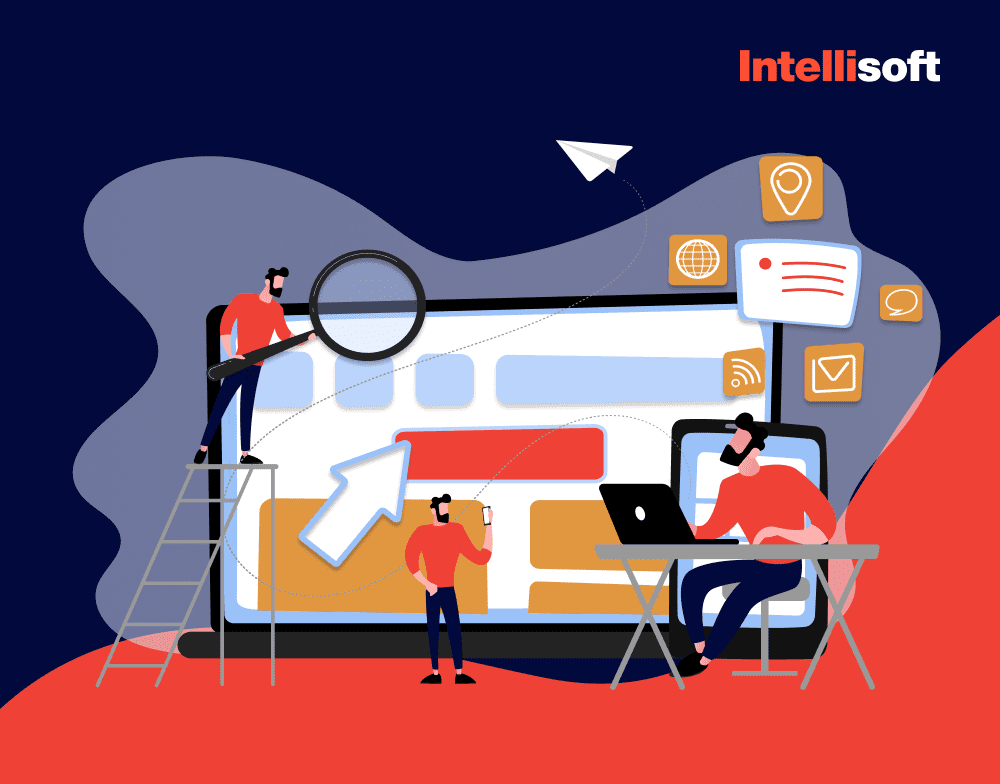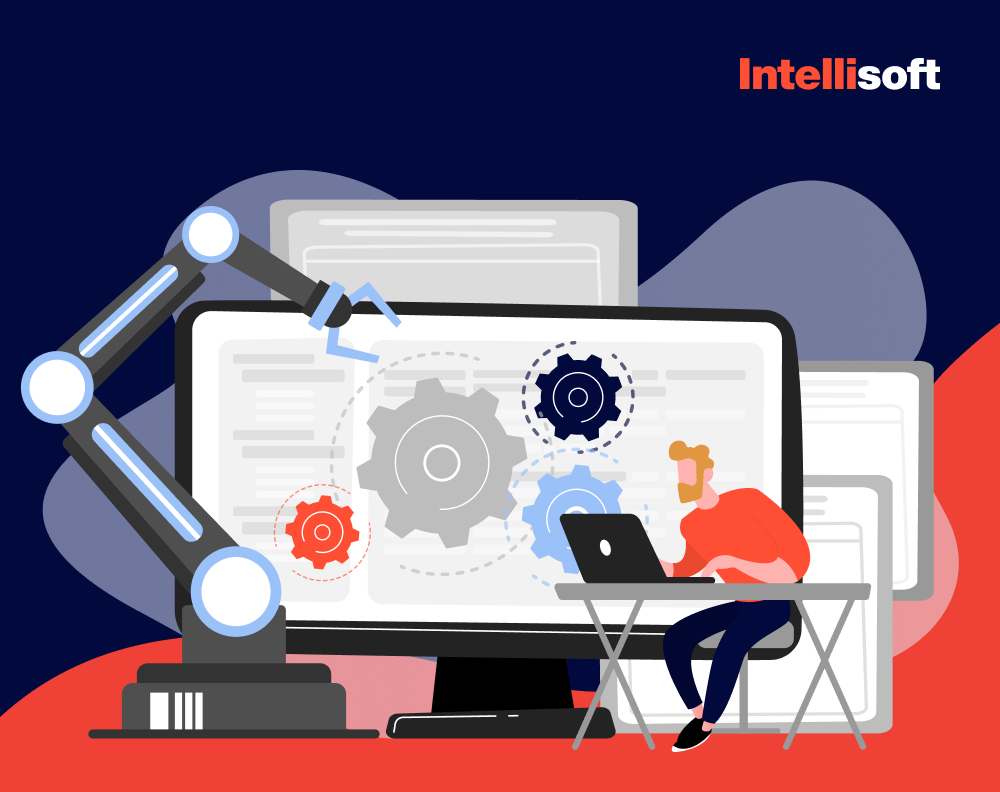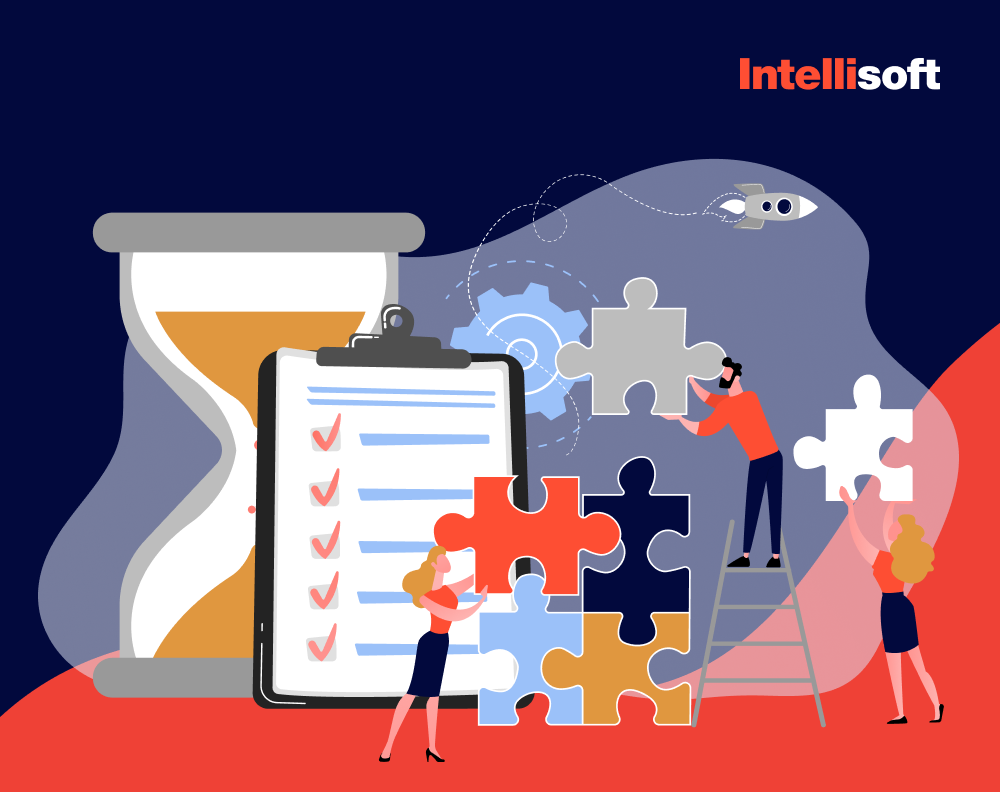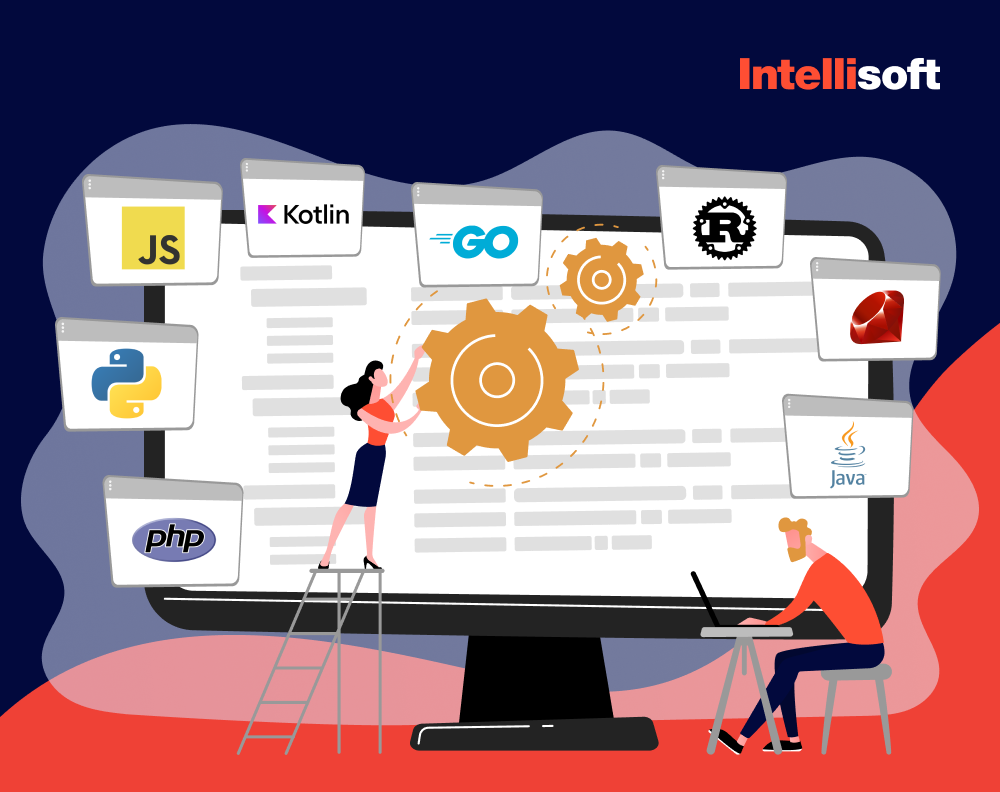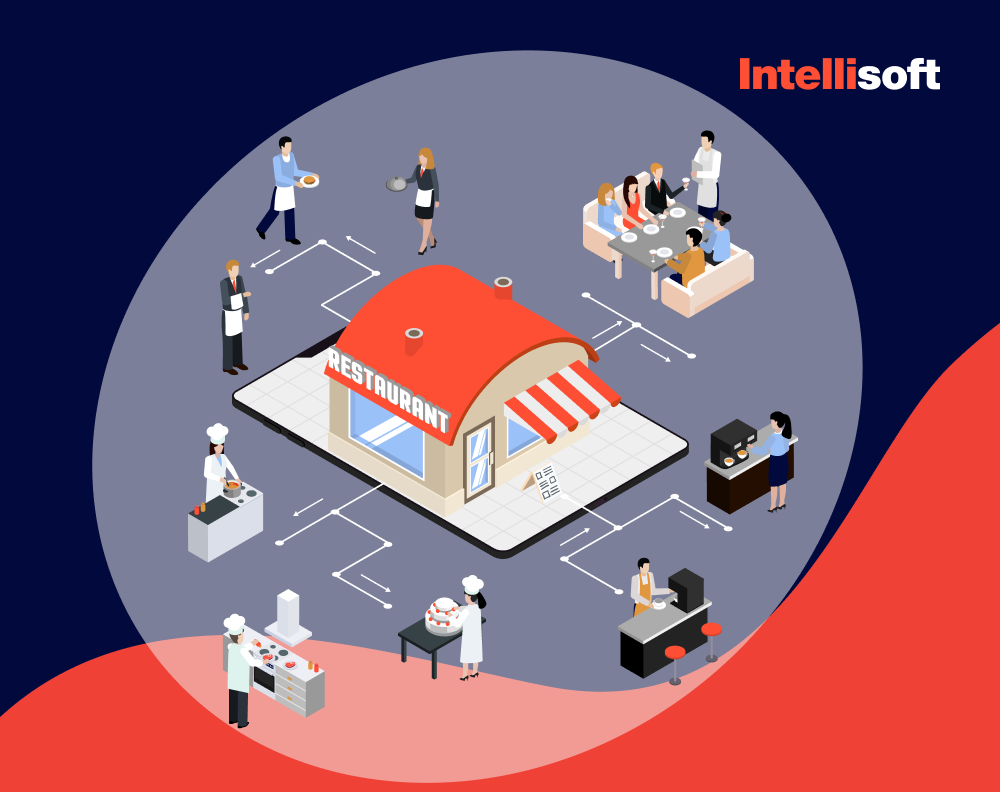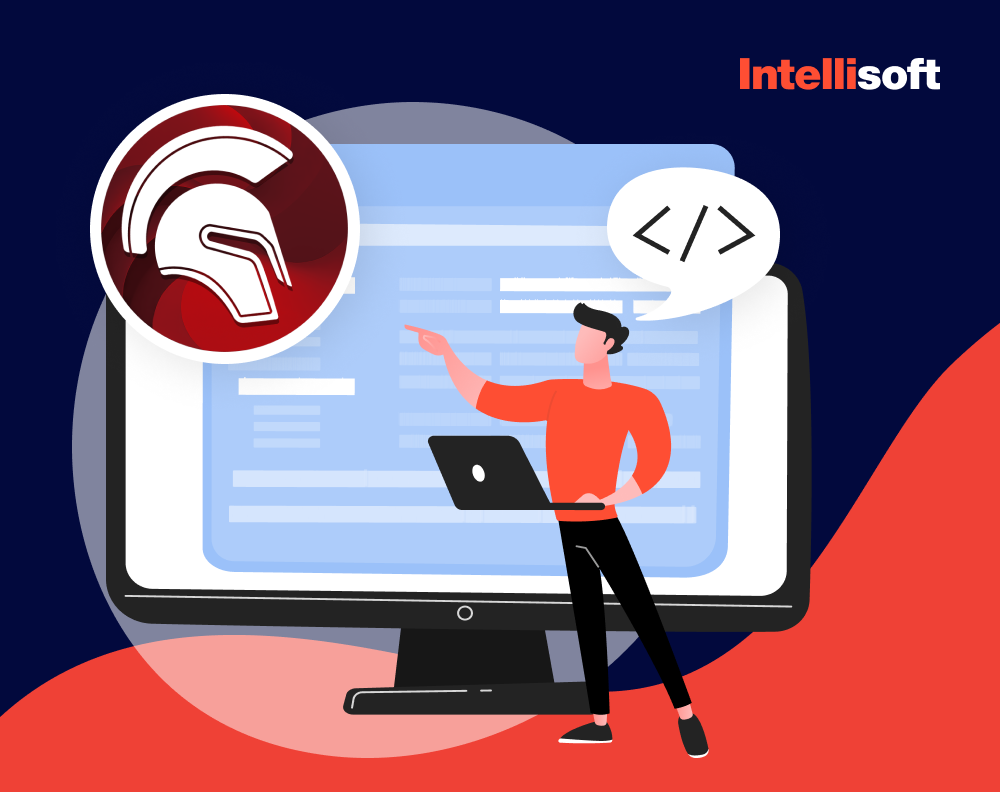In modern corporate training, old-school methods are quickly becoming obsolete. We live in an age of rapid digital transformation, which dictates the need for specialized training platforms. Gone are the days when lengthy emails and generic office tools could handle comprehensive staff training. Recent data shows that 41% of companies starting with these basic tools eventually switch to something far more advanced – an enterprise learning management system (ELMS).
Why the change? It’s simple. Traditional methods often fail to deliver efficient and effective training, while LMS platforms thrive. They revolutionize corporate education, making it more accessible and engaging for employees and cost-effective for employers. Moreover, such platforms could be customized to integrate into your unique business ecosystem and reflect a personalized learning curve for every employee.
At IntelliSoft, we focus on developing state-of-the-art software solutions that help businesses tackle their biggest challenges. With our extensive tech expertise and deep understanding of corporate needs, we’ve compiled the ultimate guide to enterprise LMSs. This guide is designed to help large companies like yours harness the full power of an LMS to improve employee performance, boost retention, and achieve measurable productivity gains.
Table of Contents
The Benefits of Implementing an Enterprise Learning Management System (ELMS)
Companies always seek new strategies to enhance operational efficiency and employee satisfaction. Implementing an enterprise Learning Management System (ELMS) has become one of the best solutions. Let’s discuss the benefits of such systems.
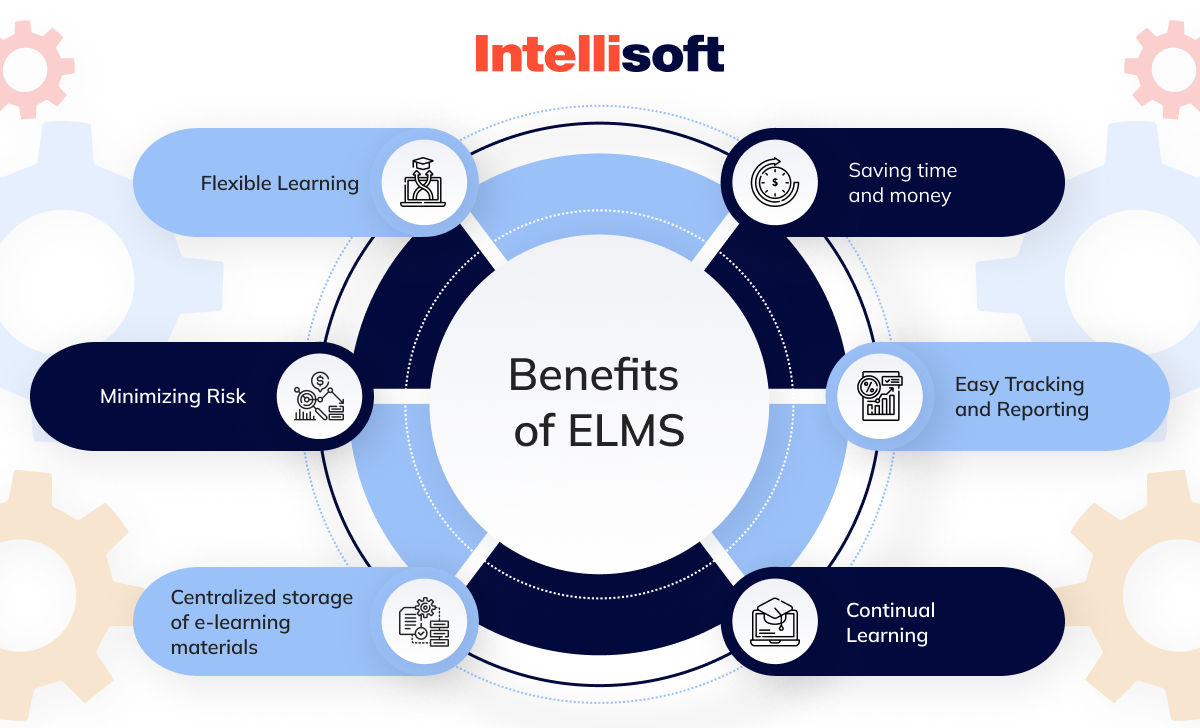
Enhancing Corporate Learning Culture
In modern business, promoting a robust learning culture is necessary to maintain a high level of knowledge among your employees. An enterprise Learning Management System (LMS) can be the cornerstone of this transformation. By providing a secure and accessible platform, an LMS encourages continuous learning and makes it easy for colleagues to share knowledge. This system improves individual skills and encourages a collaborative and innovative workplace. With an LMS, learning becomes an integral part of the company culture, promoting a mindset where continuous improvement is valued and actively pursued.
Reducing Learning Costs
Transitioning to an enterprise online learning management system can dramatically cut the costs associated with corporate training. Traditional training methods often involve hefty expenses, such as hiring trainers, renting venues, and covering travel costs. These expenses can quickly add up. In contrast, an LMS allows employees to participate in training from anywhere at any time, eliminating the need for physical resources and cutting logistical costs. Additionally, scaling up training by adding more users or updating course content is significantly cheaper with an LMS than with conventional methods.
Boosting Engagement and Onboarding for New Employees
A strong onboarding process is crucial for integrating new employees into your company. Studies have shown that a poor onboarding experience can lead to confusion and disengagement, affecting long-term retention. An enterprise LMS can address these issues by providing tailored training experiences that meet the specific needs of each new hire. Features like gamification and diverse content formats make learning engaging and relevant, greatly enhancing the onboarding experience and setting new employees up for success from day one.
Improving Staff Retention
High employee turnover can be costly and disruptive. Modern companies counter this by offering continuous learning opportunities that boost employee satisfaction and retention. An enterprise LMS is vital in this strategy, providing personalized training that aligns with each employee’s career goals and skill development needs. This approach helps employees gain relevant skills and shows the company’s commitment to their professional growth, fostering loyalty and dedication.
Achieving Measurable ROI
One of the most compelling reasons to adopt an enterprise LMS is its tangible return on investment (ROI). By enhancing employee performance and retention while reducing training costs and turnover risks, an affordable enterprise learning management system significantly improves organizational efficiency and profitability. The ROI of an LMS can be calculated using the standard formula: ROI = (Net Investment Gain / Cost of Investment) x 100. This measurement highlights the effectiveness of the LMS in delivering cost savings and productivity gains over time.
Implementing the best enterprise learning management system streamlines training processes and creates a more knowledgeable, engaged, and loyal workforce. This strategic investment enhances competitive advantage and drives long-term business success.
Key Features Defining an Enterprise Learning Management System
Choosing the right Learning Management System (LMS) can significantly enhance your organization’s training capabilities. An ideal enterprise LMS balances robust functionality and user-friendly design, supporting scalable, secure, and effective corporate learning. Let’s look at the essential features of an effective enterprise LMS.
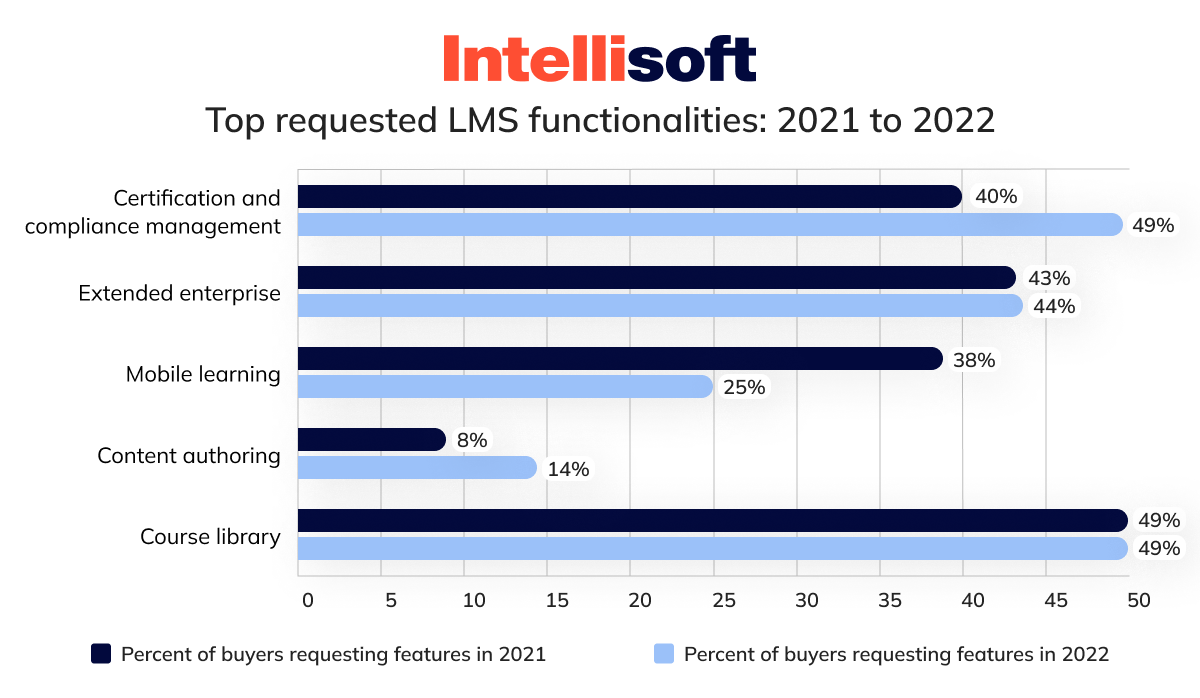
Scalability and Customization
Scalability is crucial for any growing organization. An effective enterprise LMS accommodates increasing users without compromising performance or user experience. Equally important is customization, allowing the LMS to adapt to your business’s dynamic needs. This flexibility ensures that the LMS can adjust to new training requirements, user roles, and learning pathways as your organization evolves, making it a valuable long-term asset.
Integration Capabilities
An enterprise LMS should seamlessly integrate with your existing corporate software systems. This integration facilitates efficient data exchange and enhances the learning platform’s overall utility. An LMS with extensive API support can also connect with third-party applications, including analytics tools and video conferencing software, enriching the learning experience and improving administrative oversight.
Secure Data Storage
Securely handling sensitive information is essential for any enterprise application, especially an LMS that manages vast amounts of personal and professional data. A robust LMS must offer comprehensive security features such as data encryption and secure access controls to protect against unauthorized access and data breaches. Ensuring these security measures are in place is critical for maintaining trust and complying with data protection regulations.
Enterprise Knowledge Management
An LMS acts as a repository for your organization’s collective knowledge. Effective knowledge management within an LMS helps track and bridge knowledge gaps and facilitates the sharing of insights and expertise among employees. This capability transforms the LMS from a training tool into a vital component of your organization’s intellectual ecosystem.
Content Management
It is crucial to support and manage various types of learning content. A learning content management system software for enterprise companies should enable easy creation, modification, and tracking of content, from e-learning modules to instructor-led training sessions. This flexibility ensures that all learning activities are accounted for and effectively managed within the system.
User Management and Advanced Reporting Features
Effective user management is essential for maintaining the integrity and structure of the learning environment. An enterprise LMS should allow administrators to easily manage user roles and access, including adding or removing users and assigning roles such as supervisors or instructors. With advanced reporting capabilities, administrators can extract valuable insights about learning engagement, progress, and outcomes, helping refine and improve the learning initiatives.
Single Sign-On
Single sign-on (SSO) capability is a significant feature for ease of use and to enhance user adoption. SSO enables users to access the LMS using the same credentials as other corporate systems, simplifying the login process and reducing password fatigue. This feature is particularly valuable in environments where users frequently switch between multiple systems.
Gamification
Integrating gamification into an LMS can significantly enhance learner engagement and retention. Features such as points, badges, and leaderboards make learning more engaging and competitive. Studies have shown that gamified learning environments lead to higher engagement and better retention of material, which are crucial for effective learning outcomes.
Each feature is critical in ensuring that an enterprise LMS meets your organization’s current needs and adapts to evolving demands. Your company can greatly enhance its training programs, productivity, and efficiency by choosing a system that encapsulates these features.
Related readings:
- E-Learning Platform Development: The Ultimate Roadmap
- How Much Does It Cost to Make an Educational App?
- Enterprise Cloud Computing: The Ultimate Guide
- How to Master an Enterprise Data Warehouse: a Complete Guide
- Web Application Penetration Testing: How It Ensures Security
Essential Integrations for an Enterprise Learning Management System
A top enterprise learning management system must seamlessly integrate with various key business applications to truly thrive within a corporate ecosystem. These integrations streamline processes and boost the effectiveness of training programs. Let’s discuss the critical software integrations necessary for a robust enterprise LMS.
Enterprise Resource Planning System (ERP) Integration
Combining an LMS with an Enterprise Resource Planning (ERP) system creates a unified framework to streamline various business operations. This integration combines employee training data and corporate operational data, enhancing the efficiency of both systems. An ERP-LMS integration, often enhanced by single sign-on capabilities, reduces data entry redundancy and ensures that training supports business processes. This alignment makes the LMS vital to the enterprise’s operational strategy.
Content and Video Conference Software Integration
Integrating with content platforms and video conferencing tools is essential for an LMS. This integration allows a wide range of online resources, such as courses from Coursera, instructional videos from YouTube, or professional development sessions from LinkedIn Learning, to be incorporated directly into the LMS. Additionally, video conference integration supports live virtual classrooms and webinars, offering a flexible and interactive learning experience that can replicate or surpass in-person sessions.
Human Resource Information Systems (HRIS) Integration
Linking an LMS with Human Resource Information Systems (HRIS) is crucial for maintaining a smooth flow of information between HR operations and employee training efforts. This integration ensures that employee data from the HRIS automatically updates within the LMS, supporting real-time tracking of training progress against HR metrics like performance evaluations or succession planning. It also streamlines the onboarding process by automatically enrolling new hires in necessary training programs, ensuring they receive a consistent and comprehensive introduction to the company’s policies and culture.
These integrations are not just about connecting different technologies – they’re about creating a more cohesive and responsive learning environment that adapts to the organization’s and its employees’ needs.
Assessing Enterprise Learning Management Systems: A Comparative Review
Choosing the right enterprise Learning Management System (LMS) is a crucial decision that can greatly influence the effectiveness of your organization’s learning and development initiatives. Let’s analyze some of the top LMS platforms available, Moodle, Docebo, Canvas LMS, and TalentLMS, focusing on key features essential for a successful enterprise LMS.
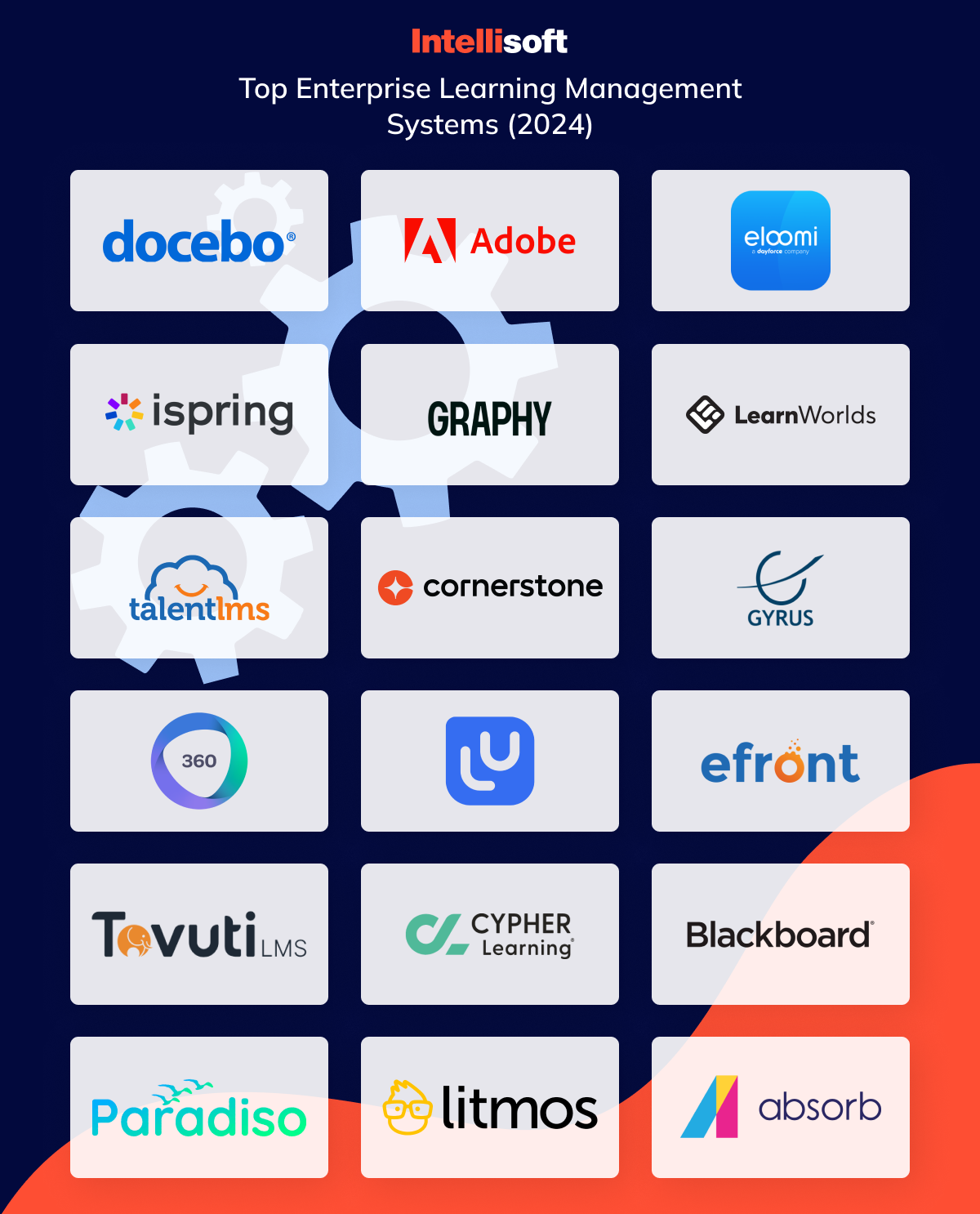
Design Customization
Design customization is a key feature that allows an LMS to align with an organization’s specific branding and learning requirements. Moodle excels with robust customization options, including dashboard and learning path adjustments. Docebo and Canvas LMS also offer extensive branding and dashboard customization, with Canvas providing an additional user-friendly drag-and-drop interface for easy course creation. TalentLMS also supports customization, though it lacks the intuitive drag-and-drop functionality, which might impact ease of use.
Third-party Integrations
Integrating with third-party applications is vital for enhancing an LMS’s functionality. All four platforms, Moodle, Docebo, Canvas LMS, and TalentLMS, support integrations with various applications, such as analytics tools, e-commerce systems, and other workplace solutions. This capability ensures the LMS can function seamlessly within an enterprise’s broader technological ecosystem.
Technical Support
Effective technical support is critical, especially for enterprise systems with a large user base. Canvas LMS and Docebo offer 24/7 technical support, providing immediate assistance through multiple channels, including chat, email, and phone. In contrast, Moodle and TalentLMS do not offer round-the-clock support; instead, they rely on online communities, FAQs, and knowledge bases for troubleshooting, which might not suffice in urgent situations.
Gamification
Gamification features are increasingly popular for engaging users and enhancing the learning experience. All four LMS platforms include gamification options tailored to specific learning objectives. Canvas LMS is particularly notable for its flexibility, supporting a wide range of plug-ins that allow for extensive customization and alignment with unique corporate training goals.
Accessibility and Mobile Learning Support
Accessibility features are essential to ensure all employees can effectively use the LMS. While platforms like Canvas LMS offer basic accessibility options, such as adjustable font sizes and high-contrast modes, there is generally a lack of extensive built-in accessibility features across the board. However, all reviewed systems provide mobile learning capabilities, ensuring that learning can occur on various devices and settings, enhancing flexibility and user engagement.
Pricing
Pricing models and transparency vary significantly among these platforms. Docebo offers a free trial and a subscription plan but lacks transparent pricing, which can lead to unexpected costs. Moodle provides flexible options with free, standard, and premium tiers depending on user numbers and required storage. Canvas LMS includes a free-for-teacher option catering to educational institutions, while TalentLMS offers multiple subscription plans that vary by feature set and user count, which can complicate cost-effectiveness if needs and offerings do not align.
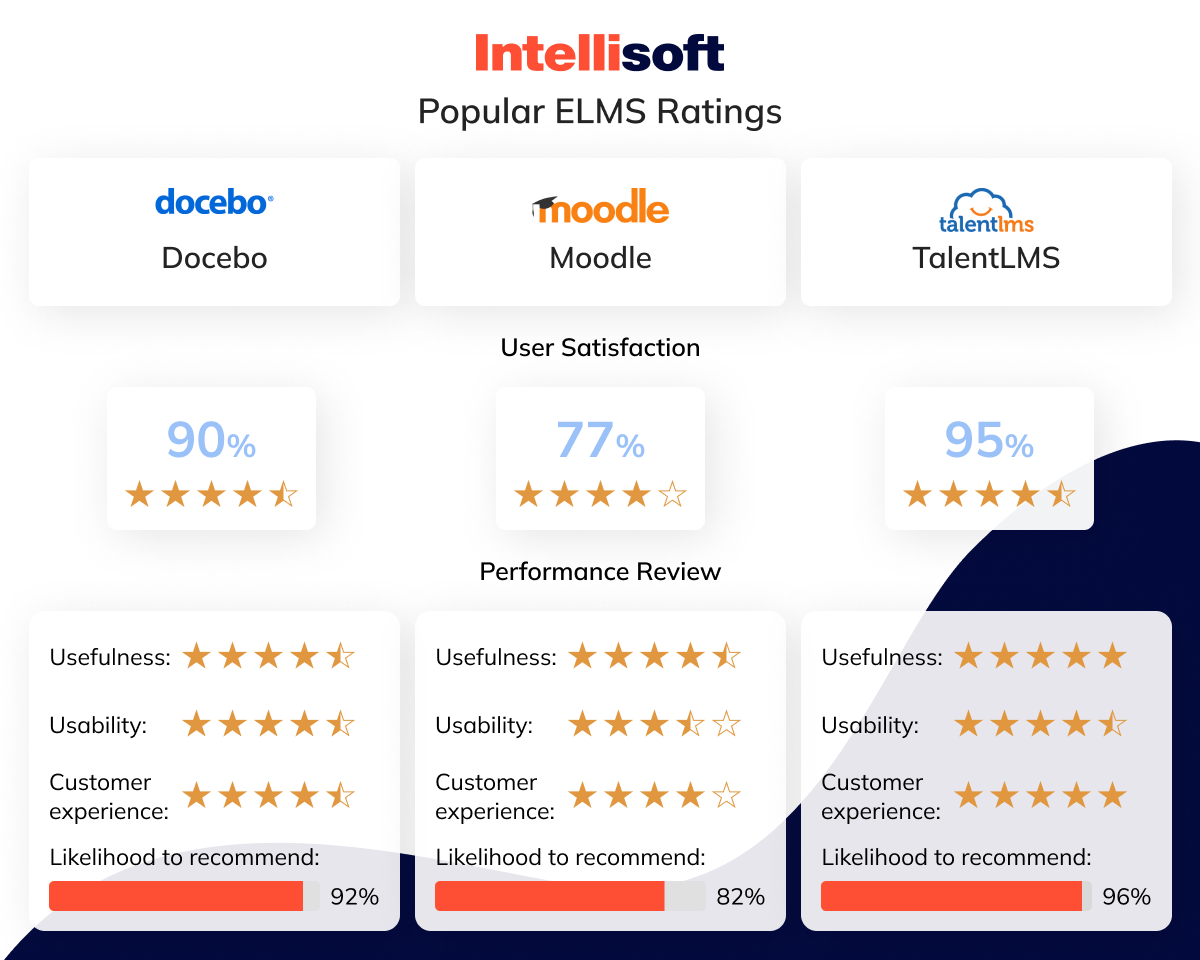
Selecting the right LMS requires carefully examining each system’s capabilities and limitations concerning an organization’s specific needs. Consider all these factors before making a decision. Ensure the chosen LMS effectively supports your organization’s training and development strategies.
Choosing the Best Extended Enterprise Learning Management System for Your Business
Selecting the right extended Enterprise Learning Management System is a strategic decision that affects the effectiveness of your corporate training programs and your organization’s overall productivity and adaptability. It’s time to outline a systematic approach to making this crucial choice, ensuring that the selected LMS aligns perfectly with your business’s needs.
Understanding Corporate Learning Needs
The first step in choosing an LMS is thoroughly understanding your organization’s learning and development needs. You need to set clear, measurable goals for what your company aims to achieve through its training programs. Engaging with HR to conduct anonymous surveys and polls can reveal your employees’ knowledge gaps and training preferences.
Additionally, analyzing data from your current LMS can provide insights into the strengths and weaknesses of your existing training initiatives. This comprehensive understanding of your corporate learning needs is foundational in selecting an LMS that supports and enhances your organizational goals.
Matching Features to Enterprise Requirements
With a clear picture of your corporate learning needs, you can identify the specific features and requirements your new learning content management system software for enterprise companies must meet. Consider the system’s scalability, its integration capabilities with other tools used by your company, the ease of content management, user engagement tools like gamification, and support for mobile learning and accessibility. This step is crucial because it ensures that the LMS you choose fits your current needs and can adapt to future challenges and opportunities.
Conducting a Cost-Benefit Analysis of Different LMS Solutions
Once you have defined your needs and the desired features of an LMS, the next step is to evaluate the available options. This evaluation should not be limited to the features alone but should also include a thorough cost-benefit analysis of each potential LMS. Assess the total cost of ownership, including the initial price and ongoing costs such as maintenance, upgrades, and training for staff to use the LMS effectively.
Compare these costs against the expected benefits, such as improved training outcomes, higher employee retention rates, and increased operational efficiency. This analytical approach will help you make the right decision that balances financial implications and functional fit.
By following these steps, you can ensure that the LMS you choose will be a powerful tool in advancing your organization’s learning and development objectives and overall strategic goals. It’s all about selecting the right software solution and investing in your company’s future.
The Advantages of a Custom-Built Learning Management System
Choosing the right Learning Management System (LMS) for your enterprise can be challenging, especially when considering the limitations often found in off-the-shelf solutions. Many businesses discover that ready-made LMS products, despite their broad range of features, frequently fall short of meeting specific organizational needs. These shortcomings can lead to dissatisfaction due to restricted functionality, inefficiency, and user difficulty.
Tailored Functionality and Integration
A custom-built LMS offers a solution tailored to your company’s needs, eliminating the compromises associated with pre-designed systems. One of the standout advantages of a custom LMS is its seamless integration capability. Unlike off-the-shelf software, a custom LMS can be designed to integrate effortlessly with your existing business systems and processes, ensuring full compatibility and enhancing workflow continuity.
Scalability and Adaptability
Custom LMS solutions are highly scalable, meaning they can grow and evolve in alignment with your business’s changing needs. Whether it’s adding new features, optimizing existing processes, or expanding the user base, a custom LMS allows for agile adjustments. This flexibility ensures the system remains relevant and provides value as your organization evolves.
Enhanced Security
Security is a paramount concern for any enterprise system. A custom LMS can be engineered to adhere to the highest security standards, incorporating specific protocols that protect sensitive information and comply with industry regulations. This tailored approach to security reduces vulnerabilities that could be exploited in more generic systems.
Ownership and Control
With a custom-built LMS, your enterprise holds complete ownership and control over the software. This autonomy allows for necessary modifications and ensures the system can adapt to new requirements without relying on external vendors. Full control over the LMS also means that you can decide on the update cycles and development paths that best suit your needs.
Dedicated Support and Maintenance
Unlike off-the-shelf products, a custom LMS comes with dedicated support and maintenance from the development team that built the system. This personalized support ensures quick resolutions to issues and continuous improvements based on your company’s feedback and evolving needs.
Cost-Effectiveness
Though the initial investment in a custom LMS might be higher than purchasing a ready-made solution, it is often more cost-effective in the long run. Custom systems do not entail recurring subscription fees, unexpected cost increases, or charges for additional features. Over time, the benefits of having a system that perfectly fits your enterprise’s unique needs can significantly outweigh the initial development costs.
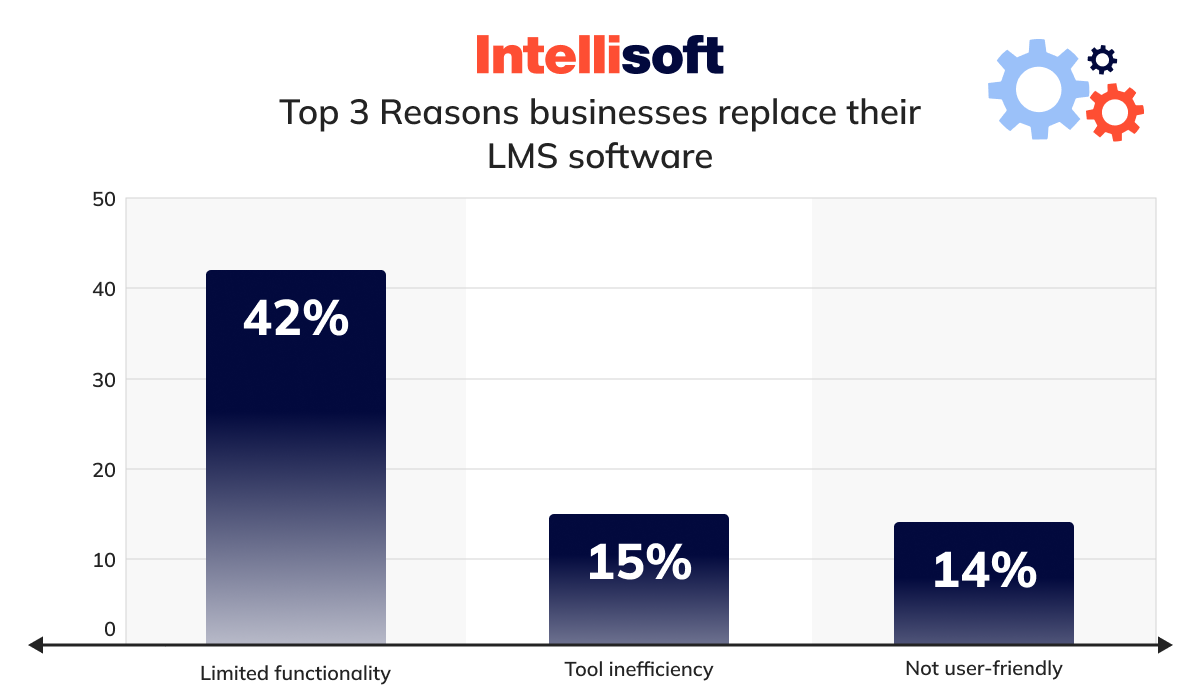
While ready-made LMSs can serve basic purposes and are quick to deploy, enterprises seeking a perfect fit to deliver long-term value and adapt to their evolving needs should consider investing in a custom-built solution. By integrating a tailored learning management system enterprise wide, you can significantly enhance the efficiency and impact of your corporate training programs. The upfront investment in custom software development ensures that you won’t find yourself searching for a new system a few years later due to unsatisfactory performance or constrained functionality.
Wrapping Up
Investing in efficient and effective training solutions is paramount in today’s business landscape, where success increasingly hinges on employee development. As Gartner highlighted, most organizations are now prioritizing a people-centric culture. This shift reflects the realization that a company’s growth is deeply tied to its workforce development.
Enterprise Learning Management Systems (LMS) are central to this dynamic. They streamline onboarding and compliance training and foster a lasting connection between employees and the organization through continuous learning opportunities. The result is a more engaged workforce, higher retention rates, and enhanced productivity, all while significantly reducing training-related expenses.
However, it’s important to note that not all LMS solutions are created equal. Off-the-shelf systems often have limitations, such as a lack of real-time support, poor scalability, and a one-size-fits-all approach that may not align with your needs. These constraints can hinder, rather than help, your efforts to create a rich learning environment.
This is where custom EdTech development comes into play. By developing a custom enterprise LMS, you ensure that every aspect of the system is tailored to fit your unique demands and culture. A custom LMS provides the flexibility to scale as your organization grows, integrates seamlessly with your existing tools, and upholds your security standards, essential for maintaining an adaptive and forward-thinking learning environment.
At IntelliSoft, we understand the critical role that a custom-tailored LMS can play in achieving business success. Our dedicated software development team specializes in creating bespoke learning management systems that are innovative, user-friendly, and perfectly aligned with your business objectives. With IntelliSoft’s custom LMS solutions, you can take control of your organization’s learning strategy and equip your employees with the tools they need to succeed.
Invest in a learning management system that grows with your business. Contact us today to start crafting your ideal learning solution.
